New for Fall 2023
ANT 3930: Language and Foreignness
Monday 11:45-1:40 and Wednesday 12:50-1:40
Dr. Moodjalin “Mood” Sudcharoen, Instructor
 How is foreignness created by ideologies about language? How do nation-states and institutions of power manage foreigners, foreignness, and foreign voices? How do such projects lead to social inequality, discrimination, and resistance? In this course, we take foreignness as the central subject of discussion. The guiding principles are that: 1) foreignness is not a state of being but an act, an ongoing process of becoming, and imagining; and 2) language plays an essential role in the process of “othering.” We begin by considering the idea that language is political. Special attention will be given to language ideology, which refers to beliefs and knowledge about language and its users in context. Building on this foundation, we explore various topics include nationalistic views of language, racial and ethnic differentiation, class and symbolic capital, border crossing and global Englishes, politics of language education, and hierarchies of accents. Through a close engagement with audiovisual materials and ethnographic projects in both American and global contexts, we consider how ideologies of language can shape collective imaginations about those who “belong” and who do not. In addition, we will also explore linguistic diversity and language attitudes on campus through archival research and oral interviews.
How is foreignness created by ideologies about language? How do nation-states and institutions of power manage foreigners, foreignness, and foreign voices? How do such projects lead to social inequality, discrimination, and resistance? In this course, we take foreignness as the central subject of discussion. The guiding principles are that: 1) foreignness is not a state of being but an act, an ongoing process of becoming, and imagining; and 2) language plays an essential role in the process of “othering.” We begin by considering the idea that language is political. Special attention will be given to language ideology, which refers to beliefs and knowledge about language and its users in context. Building on this foundation, we explore various topics include nationalistic views of language, racial and ethnic differentiation, class and symbolic capital, border crossing and global Englishes, politics of language education, and hierarchies of accents. Through a close engagement with audiovisual materials and ethnographic projects in both American and global contexts, we consider how ideologies of language can shape collective imaginations about those who “belong” and who do not. In addition, we will also explore linguistic diversity and language attitudes on campus through archival research and oral interviews.
**************************************************************************************
ANT 3930: Introduction to African Archaeology
Monday 5:10-6:00 and Wednesday 5:10-7:05
Dr. Katherine Grillo, Instructor
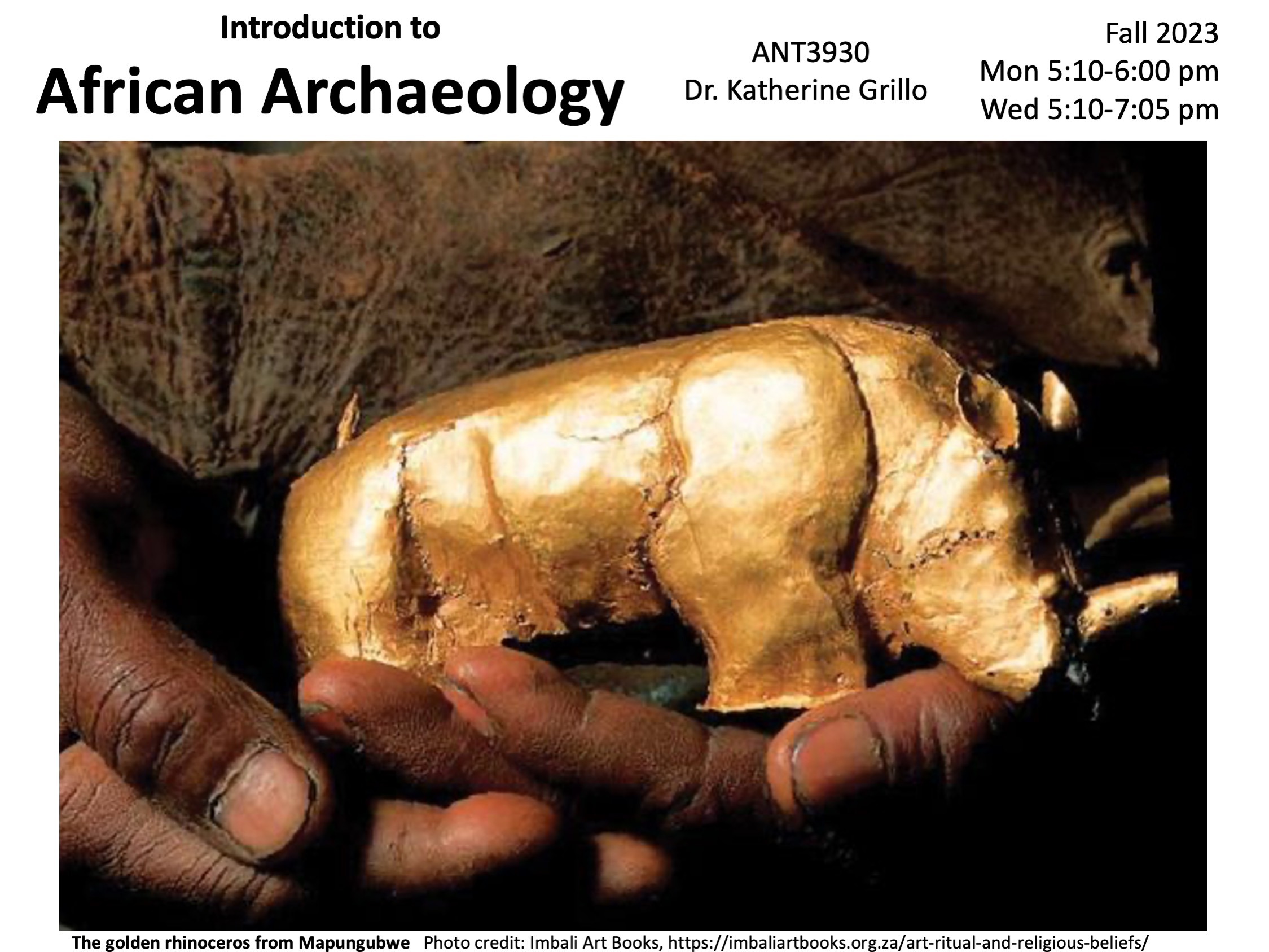 Africa has the longest archaeological record in the world, and this course will examine the rich history of African peoples and cultures from millions of years ago to the present. Topics covered will include the origins of our species Homo sapiens across Africa, the domestication of African plants and animals, the development of metallurgy, and the rise of complex urban societies. The class will also explore the archaeology of Atlantic slavery and contemporary issues in cultural heritage. There are no prerequisites; all are welcome. Students will receive priority consideration for summer fieldwork opportunities in eastern Africa.
Africa has the longest archaeological record in the world, and this course will examine the rich history of African peoples and cultures from millions of years ago to the present. Topics covered will include the origins of our species Homo sapiens across Africa, the domestication of African plants and animals, the development of metallurgy, and the rise of complex urban societies. The class will also explore the archaeology of Atlantic slavery and contemporary issues in cultural heritage. There are no prerequisites; all are welcome. Students will receive priority consideration for summer fieldwork opportunities in eastern Africa.
**************************************************************************************
ANT 4147C: Environmental Archaeology
Tuesday 9:35-10:25 and Thursday 8:30-10:25
Drs. Daniel Contreras and Michelle LeFebvre, Instructors
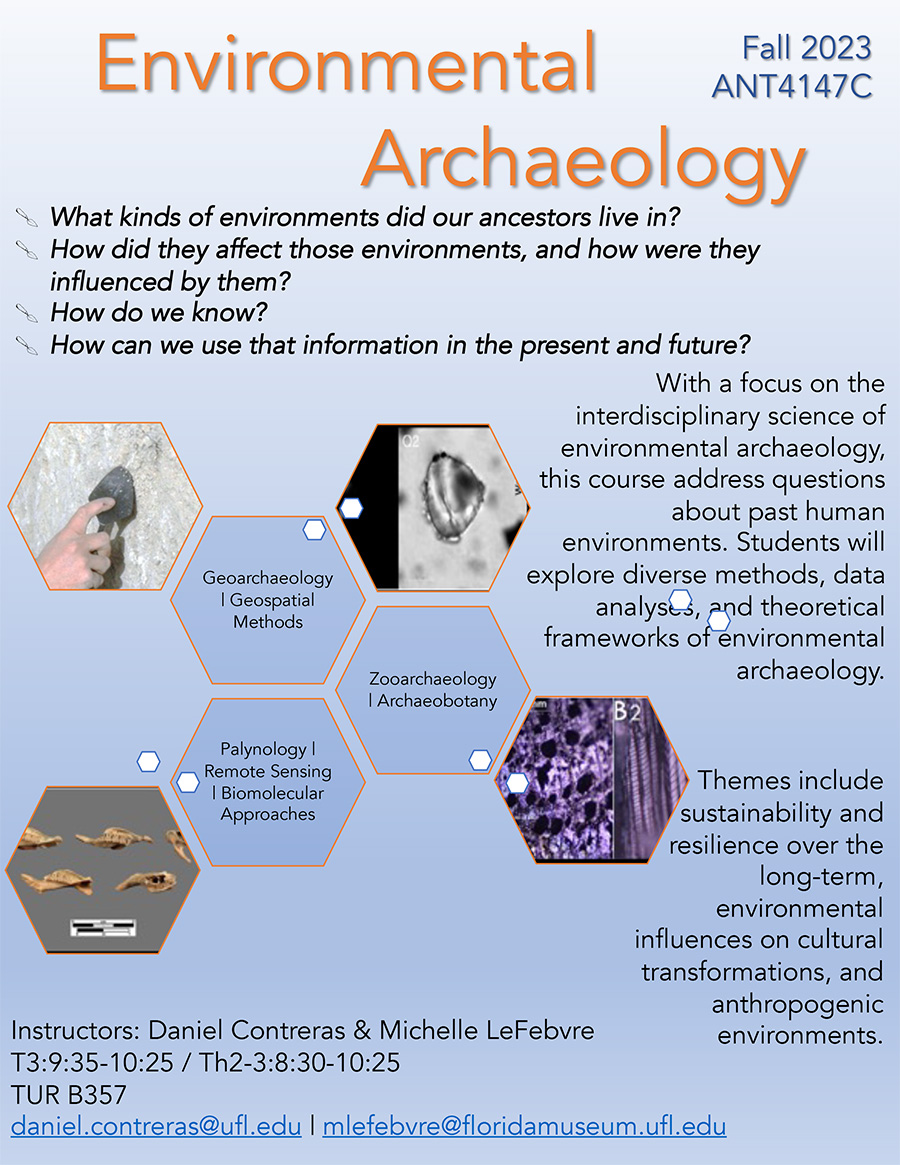 With a focus on the interdisciplinary science of environmental archaeology, this course address questions about past human environments. Students will explore diverse methods, data analyses, and theoretical frameworks of environmental archaeology. Themes include sustainability and resilience over the long-term, environmental influences on cultural transformations, and anthropogenic environments.
With a focus on the interdisciplinary science of environmental archaeology, this course address questions about past human environments. Students will explore diverse methods, data analyses, and theoretical frameworks of environmental archaeology. Themes include sustainability and resilience over the long-term, environmental influences on cultural transformations, and anthropogenic environments.
**************************************************************************************
ANT 4930/ANG 6930: Primate Minds: Cognition and Communication
Monday 12:50-1:40 and Wednesday 12:50-2:45
Dr. Stephanie Bogart, Instructor
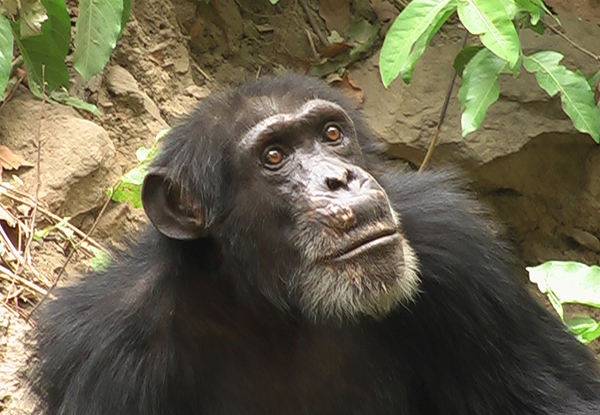 Ever wonder how human and primate minds work? This class will explore the concept of cognition and elements that can be examined in human evolution using primate models, paleoanthropological research, neuroscience, and psychology. Students will learn to breakdown and disseminate the theories and methods used in cognitive and communicative research and gain experience in articulating with peers in a discussion-based format.
Ever wonder how human and primate minds work? This class will explore the concept of cognition and elements that can be examined in human evolution using primate models, paleoanthropological research, neuroscience, and psychology. Students will learn to breakdown and disseminate the theories and methods used in cognitive and communicative research and gain experience in articulating with peers in a discussion-based format.
This is a seminar based course that will use student-led discussions over published research. Students will gain skills in reading scientific articles, leading engaging discussions, and communicating research concepts.
A prior course in primate and/or human evolution is recommended (examples: ANT3514C, ANT3555, or similar). Students can use this course for a BS elective.
**************************************************************************************
ANT 4930/ANG 6930: Applying GIS in Archaeological Research
Tuesday 4:05-4:55 and Thursday 3:00-4:55
Dr. Daniel Contreras, Instructor
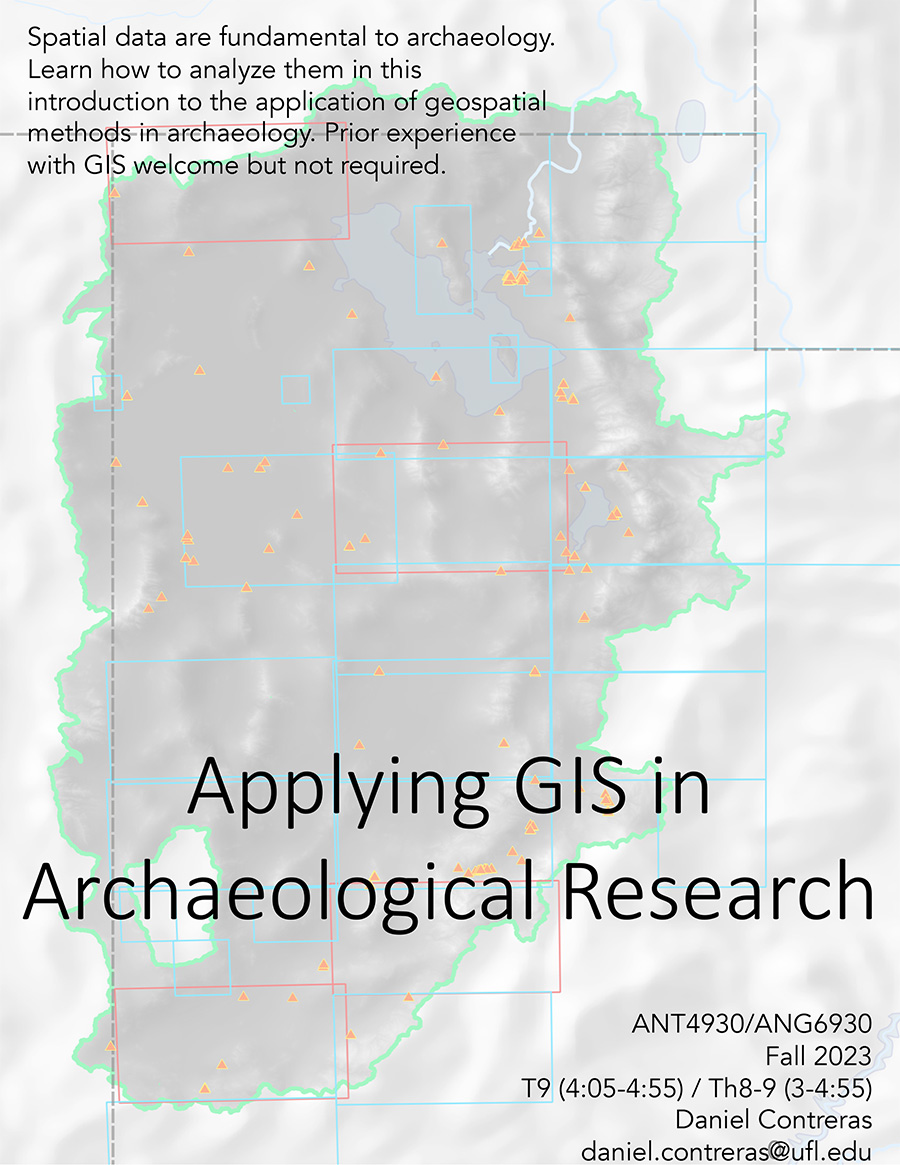 This course examines use of Geographic Information Systems (GIS) for management and analysis of geospatial data in archaeology, experimenting with methods and critically examining case studies. We will cover both methodology (collecting data in the field, using publicly-available data; integrating and querying them in a GIS) and theory (the nature of spatial data; scales and topics of analysis). We will also examine selected case studies and consider critiques that have been leveled at the use of GIS and spatial analysis in archaeology. No prior experience with GIS is necessary.
This course examines use of Geographic Information Systems (GIS) for management and analysis of geospatial data in archaeology, experimenting with methods and critically examining case studies. We will cover both methodology (collecting data in the field, using publicly-available data; integrating and querying them in a GIS) and theory (the nature of spatial data; scales and topics of analysis). We will also examine selected case studies and consider critiques that have been leveled at the use of GIS and spatial analysis in archaeology. No prior experience with GIS is necessary.
**************************************************************************************
ANG 6186: Practice of Public Archaeology
Tuesday 10:40-1:40
Dr. Kenneth E. Sassaman, Instructor
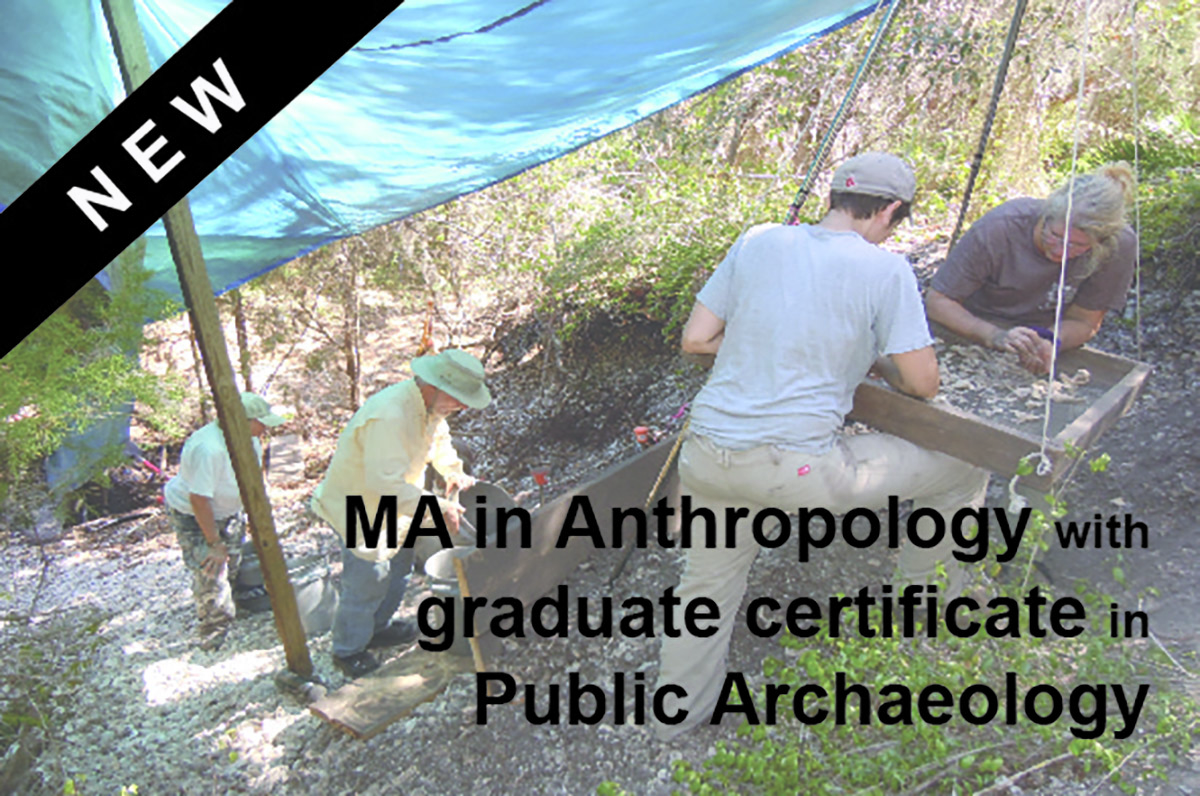 Description. A graduate-level practicum in the professional aspects of public archaeology, including law, ethics, heritage management, government and tribal consultation, community collaboration, and public communication. Fulfilling one of two core courses in a new Graduate Certificate in Public Archaeology, this practicum is open to any graduate student seeking training for potential careers in governmental, private, or tribal compliance archaeology or public outreach.
Description. A graduate-level practicum in the professional aspects of public archaeology, including law, ethics, heritage management, government and tribal consultation, community collaboration, and public communication. Fulfilling one of two core courses in a new Graduate Certificate in Public Archaeology, this practicum is open to any graduate student seeking training for potential careers in governmental, private, or tribal compliance archaeology or public outreach.
Course Objectives. Through a series of workshops with stakeholders engaged in public archaeology, students will develop an understanding of the legal, ethical, and practical challenges and opportunities of serving societal interests in heritage management. This course provides a working foundation in the law and practice of public archaeology for students who may pursue careers as project managers in heritage management; compliance professionals in government agencies and tribes; public-outreach personnel for nonprofit outfits; and related specialties.
Format. As a practicum, this course is designed to impart relevant knowledge and useful skills for professional employment in public archaeology. After the first few weeks—when we cover the fundamentals—we host one or more weekly guests who are employed in some aspect of the field. Our guests provide first-hand accounts of their job experiences, using case material and other resources to illustrate the best practices for success, as well as cautionary tales of failure. Guest presentations are paired with weekly readings on the topic at hand to develop working knowledge of the literature, and to widen the purview of the weekly topic to regional, national, and international scales. Short opening lectures by your instructor set the stage for interactive learning. Both guest presentations and reviews of literature are participatory activities, in the sense of workshopping.
**************************************************************************************
ANG 6427: The Social Life of Things
Wednesday 9:35-12:35
Dr. Susan Gillespie, Instructor
 Focuses on anthropological and related approaches to materiality–the recursive relationships enacted between humans and things. More specific topics include thing theory, experiencing things (phenomenology), object agency and human-thing entanglement, the social lives of things-in-motion, relational ontologies and thing assemblages, things as signs (semiotics), magical things, technology as making/unmaking things, things and the body, things and social identity, and the matter of mutable things, including loss and decay.
Focuses on anthropological and related approaches to materiality–the recursive relationships enacted between humans and things. More specific topics include thing theory, experiencing things (phenomenology), object agency and human-thing entanglement, the social lives of things-in-motion, relational ontologies and thing assemblages, things as signs (semiotics), magical things, technology as making/unmaking things, things and the body, things and social identity, and the matter of mutable things, including loss and decay.
**************************************************************************************
ANT 4530/ANG 6592: Seminar In Molecular Anthropology
Tuesday 1:55-4:55
Dr. Connie Mulligan, Instructor
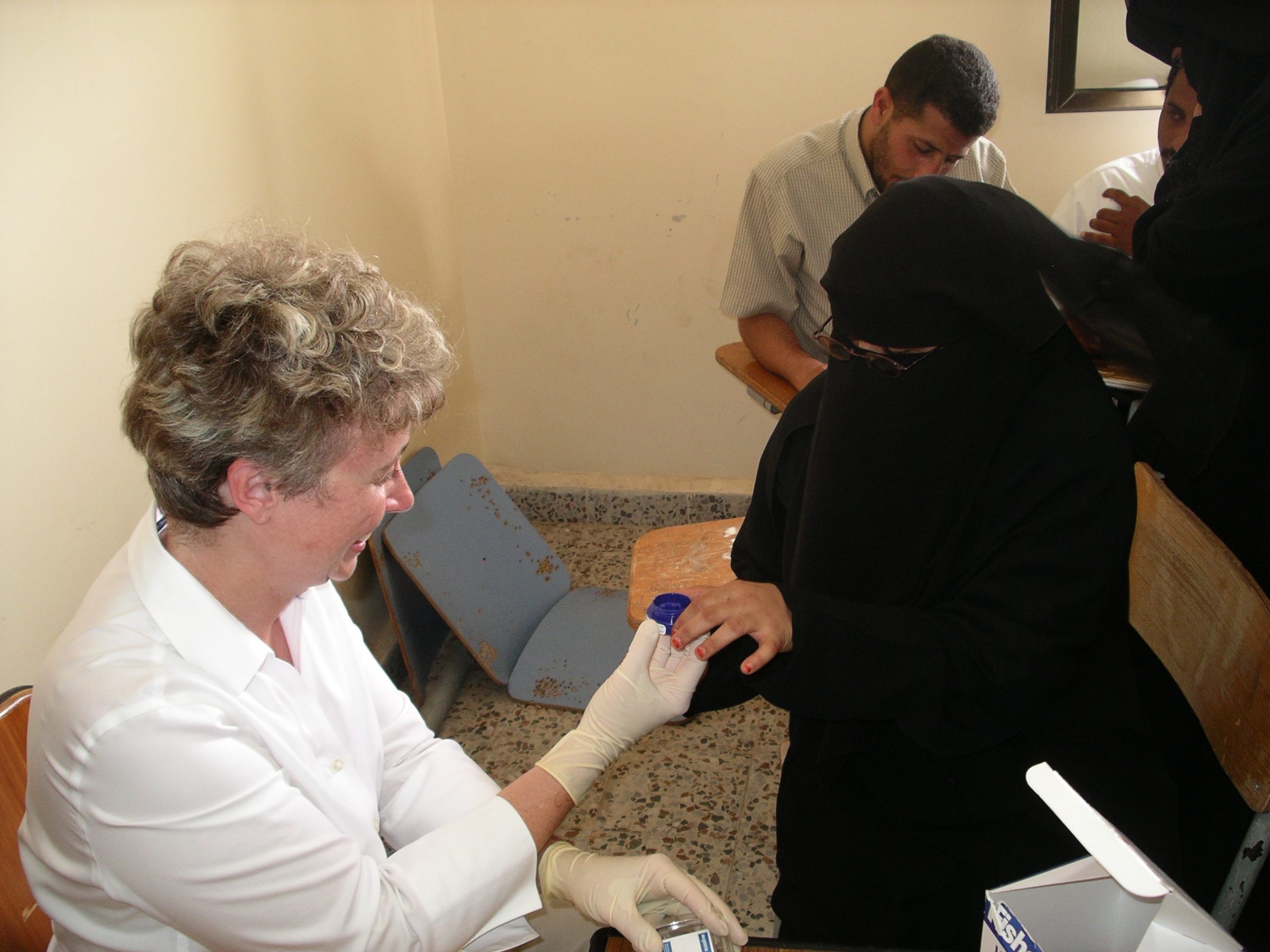
The purpose of this class is to examine current applications of molecular genetic data to questions of human evolution and population genetics. Emergence of modern Homo sapiens, Neanderthal genetics, reconstruction of human migrations, and evidence of natural selection on the human genome are among the topics discussed in detail. Examples of ancient DNA studies, admixture, and molecular genetics of human disease are also discussed.
A science background is not required to take this class, but students must have an interest in understanding the scientific basis of human evolution and human diversity. The necessary molecular genetics will be taught in the course. The course is intended for students from multiple disciplines – a diverse audience makes for a more interesting class since everyone has different backgrounds, different perspectives, and different interests to contribute to class discussions
